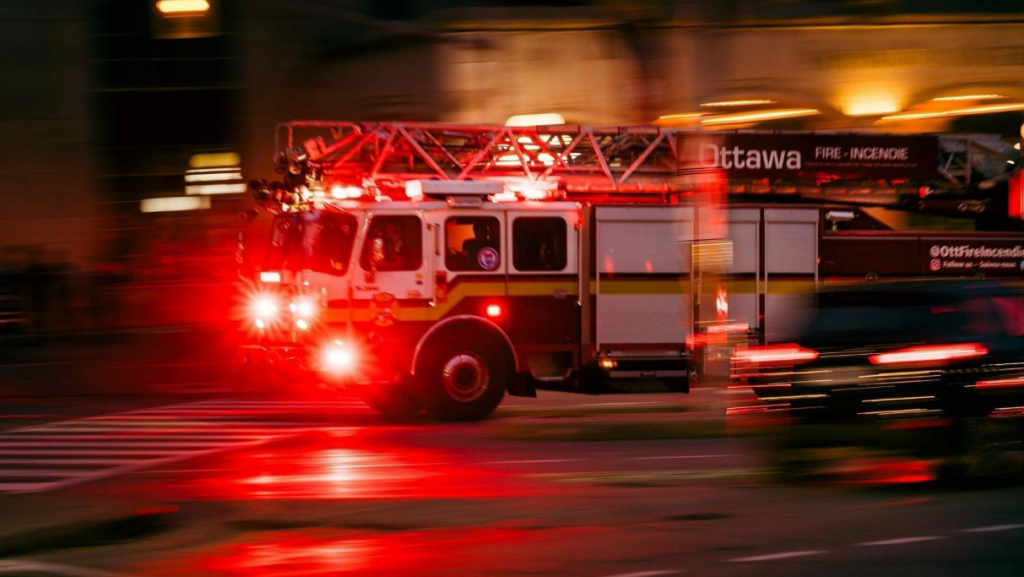TOP 10 OF 2019: #2 Spring flood reaches historic levels
Posted Dec 30, 2019 06:30:00 PM.
This article is more than 5 years old.
An extremely harsh winter with record amounts of snow set the stage for a nightmare that residents weren't hoping to re-live from two years previous.
Nearing the end of February 2019, meteorologists forecasted warm temperatures for the capital region at the end of March, which triggered the Rideau Valley Conservation Authority to suggest property owners start making plans to deal with potential flooding.
As we got further into March, warm tempertures had yet to arrive. Water Management Supervisor with the Mississippi Valley Conservation Authority Gord Mountenay said that had been allowing snow amounts to dwindle at a safe pace.
Coming into April, Mountenay added, “we should be in good shape. But again, you never know, because you can get large rainfall events coming in without much notice.”
Just a month later, on April 21, sandbagging began in communities along local waterways.
On April 22, 1310 NEWS Reporter Jenn Pritchard wrote, “On a warm, sunny Easter Monday, keeping flood waters at bay is the only thing on the minds of many in west Ottawa.”
Water could be seen in backyards lining the Ottawa River along Grandview Road, between Shirley's Bay and Andrew Haydon Park.
At that point, West Carleton-March City Councillor Eli El-Chantiry said the area was expecting water levels that would put 2019 in the top five worst flood seasons the region has ever seen.
As water levels continued to rise that week, Prime Minister Justin Trudeau met with volunteers in Constance Bay and started filling sandbags. He said, “if it's not tornadoes, it's flooding,” as he thanked everyone for their hard work.
On April 28, the Ottawa River Regulating Committee's forecast showed the waterway reaching its highest 2019 levels through the Ottawa region — already higher than flooding peaks in 2017, for most local areas.
Through early May, homeowners along the Ottawa River braced for the dreaded second peak of the flood. In Pembroke, the Ottawa River swelled to a new record, rising higher than the all-time record peak, set in 1960.
Floodwaters were finally reaching their second peak, and then would start to recede around mid-May.
It wasn't until June 12 — 49 days after flood preparations kicked into high gear across the capital region — that Ottawa lifted its state of emergency.
Mayor Jim Watson thanked city staff, the Canadian Armed Forces, Team Rubicon, The Salvation Army, Samaritan's Purse, the Red Cross and Ottawa Volunteer Search and Rescue for their help. He also thanked the 15,000 volunteers that came out to the affected communities and helped fill 1.5-million sandbags in order to protect local properties.
By late June, the National Capital Commission estimated overall flood-related damages to cost it somwhere between $6-million and $10-million. A big chunk of that money was going toward repairs for the Portage Bridge, which were estimated to cost $4-million over two years.
Results from a provincial investiagtion into the cause of the spring 2019 flood were released on November 28. A special adviser on the event said no human error was at the root of the problem.
Doug McNeil said the disaster was due to a colder-than-average winter and spring, higher-than-average snowpack, the lack of a significant winter thaw, rapid snowmelt and a lot of rain in the spring.
“No [human] negligence was the cause of the flooding,” added Minister of Natural Resources and Forestry John Yakabuski. “In fact, there were steps taken that mitigated the effect of the flooding. It would have been worse, otherwise.”
The report left El-Chantiry frustrated with the province. He explained that it wasn't just a lack of solutions in the report, but the way the report itself was delivered.
“Why did he get a copy of it and the municipality the size of ours, the second largest municipality in the province, you don't share the report with them ahead of time? And then you [say] in the report that we need to work together. Like seriously?”
In the end, El-Chantiry accepted the findings in the report, that human error did not play a role in the spring flood, but he also questioned the Ontario government's reasoning.
“It seems this government, whenever [it's] convenient for them to use climate change, they are. And climate change becomes the narrative of do nothing,” he said. “So basically it's the same government that is taking the federal government to court on climate change. Now they're saying everything [the floods] was climate change”
El-Chantiry also wanted to know what the government planned to do to mitigate future flooding and if they would be offering buyouts for property owners along waterways, like the Quebec government has done.
“Nothing has been done. [Flood vitims] are going to celebrate Christmas in someone's basement or in a hotel or a motel. What would you say to those people?”
He said the summary of the report as a whole is disappointing and he would like representatives from the provincial government to come to Constance Bay and explain themselves to the 126 families still dealing with the effects of the 2019 spring floods.








